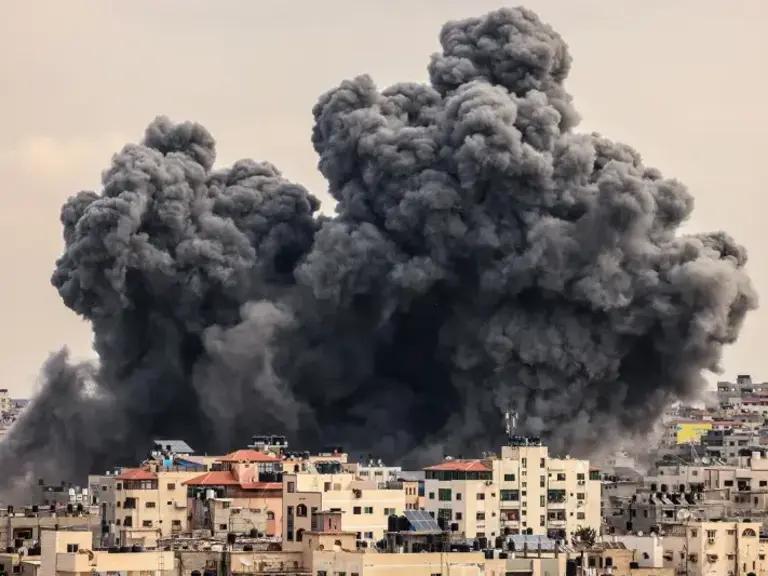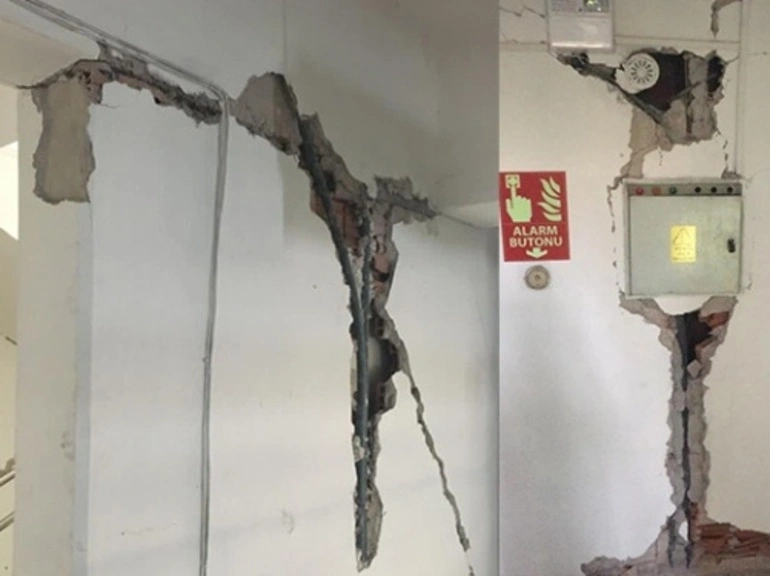Gaza Blockade: The Siege Has Always Been There, Why Is It Unlawful?
31 October 2023 – Afra Teren Gürlüler

The Middle East has been a region of intense conflict for centuries. Unfortunately, human rights violations are inevitable where there are armed conflicts. Although it has always been a region of active conflict, last weekend one of the most unexpected and bloody attacks in recent history took place in the heart of the Middle East. We are used to Palestinian-Israeli conflict and human rights violations. But for many of us, Hamas infiltrating Israeli territory and brutally killing a significant number of civilians was an unexpected tragedy.
After this terrorist attack, which raised many questions, the only thing on everyone’s mind was Israel’s harsh response. Indeed, in the days that followed, Israel began its offensive in the region in earnest. The Israeli state’s harsh attacks on Gaza, especially under the Netanyahu government, are well known. But this time, some statements by Israeli ministers require legal scrutiny.
In the rest of the article, I will talk about why Israel’s statements and doings are unlawful. If you are going to read this article with opinions such as “Is there international law?”, “Israel does this all the time” or “But terrorists attacked Israel, Israel has the right to respond”, I would like to say that this article will not make you happy. The actual circumstances do not prevent me from speaking the truth as a lawyer.
The Unlawfulness of the Gaza Attack
Israeli Energy Minister Israel Katz’s statement, “Humanitarian aid to Gaza? No electricity switches will be turned on, no water taps will be turned on and no fuel trucks will enter until Israeli prisoners return to their homes” was reported in the press. Although the translations of politicians’ statements should be approached with caution, especially in times of conflict, it is clear from the developments so far that there will be a “siege” in which all communication and flow to Gaza will be cut off. As a matter of fact, at the time I am writing this article, there is no electricity in the region because Gaza ran out of fuel oil.
War has also had rules for a very long time. Of course, even if certain legal rules disappear in times of war, there is still a law that must be referenced. The most important subject of protection under this law is civilians. In other words, it is essential to protect people who are not part of the military element during war. In fact, the most important factor that distinguishes inter-state conflicts from terrorism is that states cannot use indiscriminate and targetless violence.
Many violations that occur during these conflicts can be discussed. However, I will focus on certain violations here. First of all, let’s address the issue of not allowing the passage of materials such as water and food. Our most important international document on armed conflict is the Geneva Conventions. Drafted in the 19th century with the impact of various massacres in wars, these conventions are an important guide in human rights law. These conventions regulate the status of soldiers (on land, air, and sea), the status of prisoners of war, and the status of civilians in war.
In this article, I will refer to the fourth convention, the Convention on the Status of Civilians. Article 23 of the Convention is of great importance today. When we read the rationale of this article, it will be understood that due to the size of the trade volumes of states with each other, there is a need for a regulation considering that preventing the trade of a state with the outside world in a state of war would collectively harm the entire population, regardless of whether they are combatants or civilians, and would cause serious difficulties in continuing their lives.
The first part of the article is as follows: “Each High Contracting Party shall allow the free passage of all consignments of medical and hospital stores and objects necessary for religious worship intended only for civilians of another High Contracting Party, even if the latter is its adversary. It shall likewise permit the free passage of all consignments of essential foodstuffs, clothing, and tonics intended for children under fifteen, expectant mothers, and maternity cases.”
When we analyze the article, we understand that civilians and especially vulnerable groups must be protected during war. In this case, there is no dispute that preventing any kind of humanitarian aid to the region without any discrimination would be in violation of the Geneva Convention. Israel’s statements violate this rule, among many others.
At this point, there are those who argue that Israel has given civilians 48 hours to leave Gaza. But this can never be an excuse or a defense for indiscriminate violence. Indeed, Palestinian civilians living in Gaza cannot cross into Israel. The only other option for them to leave is through the Egyptian crossing. But we know that Egypt has also closed this gate. So, even if they are told to leave, there is no such possibility for civilians. Therefore, it is not effective and realistic for them to be warned to leave in advance. In this situation, Israel has to distinguish between civilian and military elements in the use of force, while using its rights in responding to a terrorist attack.
We also have to take into account the Rome Statute, which is the basic guideline for international criminal proceedings in these circumstances. Crimes against humanity are basically regulated on the basis of this Statute. Article 8 of this Statute regulates War Crimes. According to paragraph 2 (b) (xxiv) of Article 8, “Intentionally directing attacks against buildings, material, medical units, and transport, and personnel using the distinctive emblems of the Geneva Conventions in conformity with international law” is a war crime. As far as we can see, these are not being observed in the attack. In this situation, if Israel carries out this siege in the way it claims, and it seems likely that it will, it is not beyond the realm of possibility that it will commit war crimes. The fact that this has been done many times in other conflicts does not change the fact that what has been done would be a war crime.
We should also look at Article 7 of the Rome Statute. Since it is possible to talk about the possibility of mass extermination within the scope of this article, we are faced with an attack that can be characterized as a crime against humanity. Article 7 clearly states that “Mass extermination includes depriving a part of the population of access to food and medicine, as well as deliberately worsening their living conditions, with a view to exterminating them.” This article also states that the consequences of Israel’s full siege would be in violation of international law.
What Should Israel Do?
Should Israel have remained silent in the face of attacks on its own civilians? Does Israel not have the right to use force? As I mentioned at the beginning of this article, Israel has a right to retaliate, and in fact, the right to use force has arisen under international law and self-defense. However, Israel must be proportionate in its use of force, and under all circumstances, it must conduct its military operation without harming civilians.
Unfortunately, civilians and especially vulnerable groups of society such as children, the elderly, women, and the disabled are always the most affected by these conflicts. We are also faced with the fact that if it continues, there will again be a great wave of migration in the region. Therefore, I hope for a ceasefire in the region as soon as possible.

 Kuru Otlar Üstüne | by İlhan Archy
Kuru Otlar Üstüne | by İlhan Archy 
